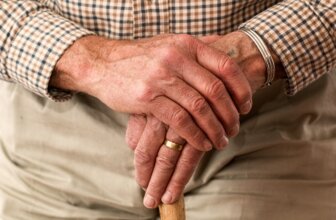Welcome to this 10 Essential Safety Tips for Seniors Living Alone.
Picture this, you have a daily routine that you carry out with complete peace of mind. And the main reason for this relaxed attitude?
You have a well-adapted home environment, that is ideal for the way you do things!
Each year, thousands of seniors experience falls and accidents that could have been prevented with simple modifications and a bit of planning.
This guide offers safety tips to help you maintain your independence and ensure your home supports everything you need and want to do.
1. Make Your Home a Safe Haven
Ensuring your home is adapted to your needs can profoundly impact your safety and quality of life:
- Install Grab Bars and Rails: Place these essential aids in bathrooms, beside the bed, and in other areas where extra support might be needed.
- Eliminate Trip Hazards: Arrange furniture for clear pathways and secure rugs to prevent slips.
2. Be Prepared for Anything
Emergencies strike without warning, but preparation can mitigate risks:
- Medical Alert Systems: Choose a system that allows you to easily contact emergency services if needed.
- Emergency Contact Lists: Keep a list in multiple accessible locations around your home.
3. Fire Safety: Keeping the Flames at Bay
Prevent fires before they start with these simple precautions:
- Smoke Detector Installation and Maintenance: Regularly test and replace batteries in all your smoke detectors.
- Safe Cooking Practices: Use timers and automatic shut-off appliances to prevent kitchen fires.
4. Bathroom Safety: Prevent Falls Where It Matters Most
Transform your bathroom into a safe space with these adjustments:
- Non-Slip Mats: Secure non-slip mats inside and outside of your shower or tub.
- Shower and Bath Modifications: Consider shower seats and easy-access tubs to enhance safety.
5. Enhance Night-time Safety in Your Bedroom
Your bedroom should be a safe retreat:
- Proper Lighting: Install touch-activated lamps within easy reach of your bed.
- Accessible Furniture Arrangement: Keep essential items like your phone and glasses within arm’s reach.
6. Secure Your Space: Smart Home Security for Seniors
Defend your home against intruders and scams:
- Secure Doors and Windows: Strengthen entry points with high-quality locks and security bars.
- Scam Prevention: Educate yourself about common scams and regularly review your security practices.
7. Mobility Within Your Home
Enhance your mobility at home with these tools:
- Stair Lifts and Ramps: Improve access to different levels of your home with stair lifts or ramps.
- Accessible Vehicle Options: Equip your car with modifications like swivel seats for easier entry and exit.
8. Key Health Checks to Keep You Thriving
Monitor your health to maintain your lifestyle:
- Medication Management Systems: Use systems that remind you when to take your medication.
- Regular Health Check-ups: Schedule and keep regular appointments to stay ahead of health issues.
9. Lighting Up Your Living Spaces
Ensure your home is well-lit to avoid accidents:
- Adequate Lighting: Increase the wattage in lamps and ceiling lights in frequently used areas.
- Clearing Clutter: Keep your living spaces tidy and free of unnecessary clutter.
10. Utilizing Local Resources for Senior Safety
Stay connected with local support networks:
- Leveraging Community Help: Engage with local senior centers and health services.
- Technology Aids: Use apps and devices designed to improve safety and communication.
Safety Tips for Seniors – Summary
With these 10 safety tips for seniors, you are well-equipped to create a living environment that supports your independence and well-being.
Safety is an ongoing journey, and adapting your space to meet your changing needs can provide comfort and security as you enjoy your golden years.
Looking for more great advice on Independent Senior Living? Check out this article.




